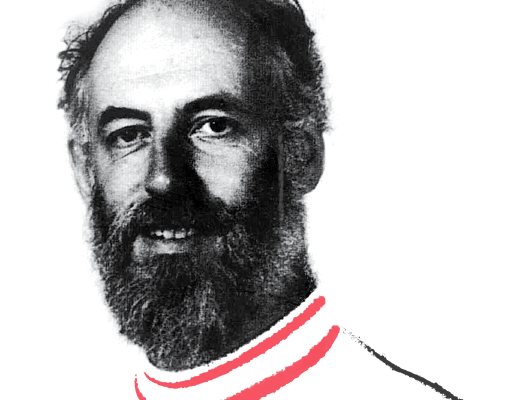Some other fragments recalled
Among other virtues, Stephen Murray-Smith, founder-editor of Overland, is acknowledged for his many good deeds. One I treasure is the introduction that led to a thirty-two-year friendship with John McLaren.
John’s achievements were many, such as when he was appointed to edit the monthly journal Australian Book Review. Originally founded in 1960 by Max Harris and Geoffrey Dutton, the magazine appeared in a new format and became the official journal of the National Book Council in 1980, with John at the helm. At ABR, John enlisted a team of talented academics to write reviews of Australian publications: the poet Barbara Giles; senior librarian of St Kilda Public Library, Vida Horn; writer John Hanrahan; science lecturer at the University of Melbourne, Max Marginson; and specialist in youth literature, Margaret Dunkle. Other experts called upon were Laurie Clancy, Beverly Farmer, Judith Wright, Brian Matthews and Don Watson. I felt quite distinguished when John invited me to join his gifted team. Up to that date, I had had only a couple of pieces published in Overland.
Working with John was a revelation: he typed into his computer facts, events, places, names and dates without referring to his large Oxford dictionary, the thesaurus or his vast library of perhaps a thousand titles.
As with all good things, this set up came to an end during the early 1980s when, unknown to us, strange and powerful forces were at work. Without warning, a trio widely known as the ‘Penguin Mafia’ ensured the removal of John McLaren and his entire editorial team, with no explanation or reason forthcoming. An exercise of power and personal interest most despicable.
John gained some solace when he accepted the offer to edit the leading literary magazine Overland, a role he enjoyed a little over two years, after which he devoted his life to writing his many works (principally on education). Thankfully, John lived to enjoy the reward of an Order of Australia in 2015 for his services to literature.
His last publication, Melbourne: City of Words, was a monumental work in concept and in use of the English language; reading John’s swan song is an intellectual joy.
I was shocked, as no doubt others were too, by the death of Shirley McLaren in 1999; then, at John’s despair, which lasted quite a time after Shirley’s passing. I sought to comfort him, relating my own reaction to the loss of a companion, and my resistance to self-pity – ‘Why me? Why my wife?’ – and remorse – ‘If only I had …, If only I had not …’ To succumb can be quite destructive.
John listened and offered me a slightly trembling hand. That hand, sadly, will never write again. Gone from us is a loyal and humanitarian democrat, a person straight down the middle in matters of honour.



